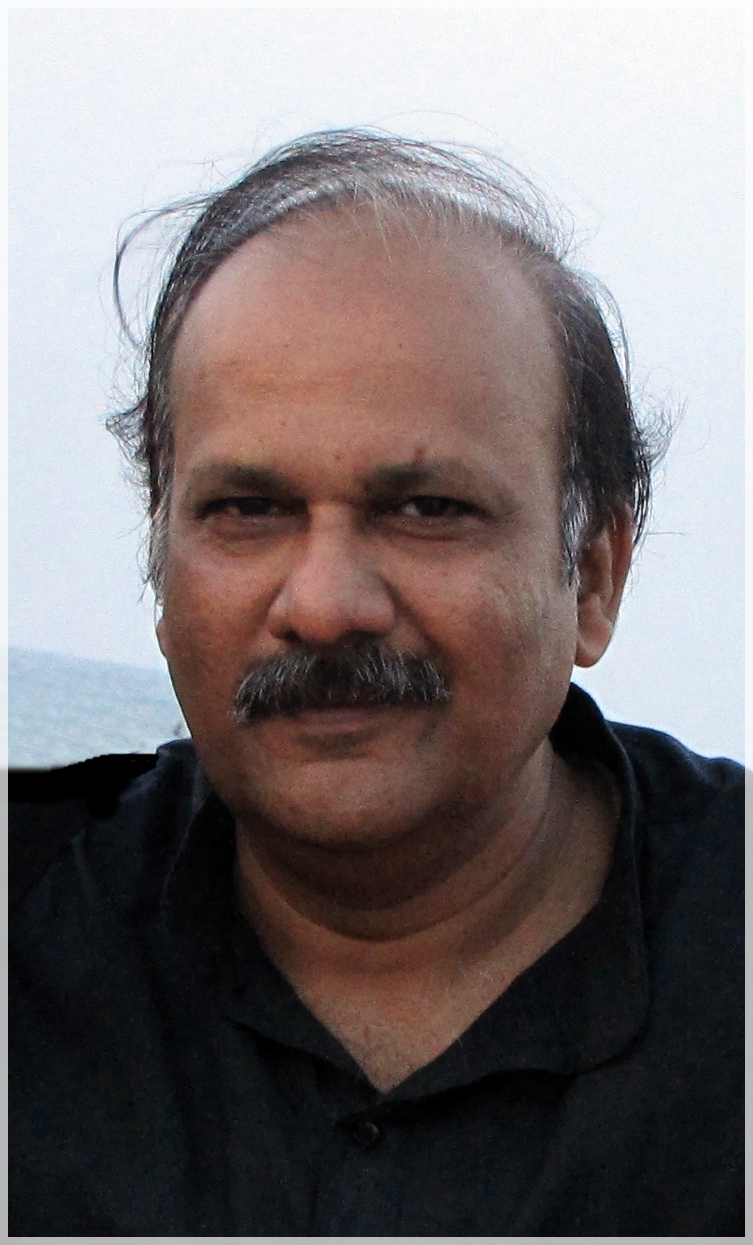|
Poet, artist and critic—Professor and Head, Department of English, Pondicherry University, Pondicherry, India - Murali Sivaramakrishnan is the author of The Mantra of Vision: An Overview of Sri Aurobindo’s Aesthetics (1997) South Indian Studies (1998) and a number of critical essays and four volumes of poetry - Night Heron (1998); Conversations with Children (2005); Earth Signs (2006); The East-Facing Shop and other Poems (2010). His poems have been noted for their genuineness of feeling and sensitivity to form.
Murali Sivaramakrishnan is the founder President of ASLE India (Association for the Study of Literature and Environment). He has travelled widely and participated in several conferences and workshops within the country and abroad. Murali has held more than 14 solo exhibitions of his works in India and abroad. Murali’s work - a sculpture (cast in fibre) of Prof CD Narasimhaiah - adorns the conference hall of Dhvanyaloka, Centre for Indigenous Arts, Mysore.
Murali has authored over 100 research papers and his academic publications include: Figuring the Female: Women’s Discourse, Art and Literature (2005) co-edited; Tradition and Terrain: Aesthetic Continuities (2005) co-edited; Nature and Human Nature: Literature, Ecology, Meaning (2008); Learning to Think like Myself (2010); Ecological Criticism for the Present: Literature, Nature and the Critical Inquiry (co-edited) (2011), Image and Culture: The Dynamics of Literary, Aesthetic and Cultural Representation (2011). Inter-Readings: Text, Context, Significance (co-edited) (2012).
An extract from Dr. K.Satchidanandan's Introduction to The East Facing Shop, 2010:
Murali Sivaramakrishnan is not the kind of poet who assails the reader with shocking images, challenges her to interpret his ambiguous lexical and semantic games or indulges in pure fantasy at the cost of intelligent reflection on man’s being on earth. His poems are meditations on the states of existence, not only of human beings whose hubris makes him imagine himself as the focal point of the universe and the acme of God’s creation, but of the of the whole created world where objects, plants and animals are by no means casual and peripheral to an anthropocentric universe, but are organic parts of a wholesome design. The poems in The East Facing Shop are spiritual without being dogmatic, tender without being sentimental, philosophical without being pedantic, communicative without being loud and well-crafted without being clever….
Despite this desperate obsession with emptiness, meaninglessness and death, the poet’s world has enough light and tenderness to make life possible. If every tale has a stone in it, every stone has a tale in it too. (see ‘Stones of Silence’). There is too a concern for the vanishing little things that used to make our life beautiful, like the east-facing shop in the title poem, the tiny barber shop, where “One went in like Robinson Crusoe/And came out spruced nd shaped/ Like the Prince of Wales !” The shop is now long gone; multistoried buildings have come up in its place; the village is no more a village and that monstrous complex of concrete and steel has no space to spare for a tiny east-facing shop.
|
 |